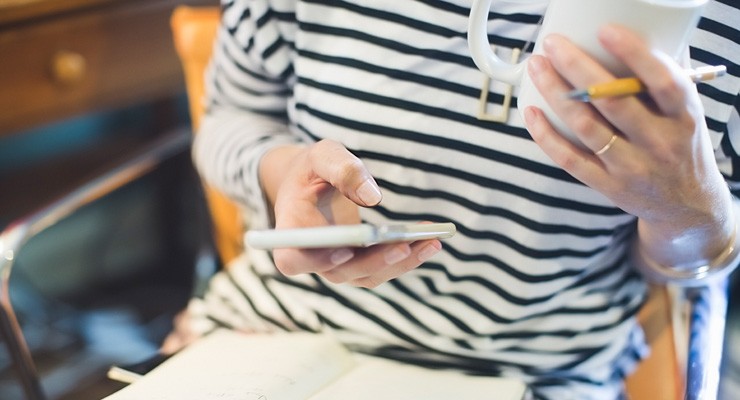Getting a Grip on Emotional Eating
These strategies may help you manage your eating when stress hits.

Do you find yourself standing in front of the fridge when you’re bored, lonely or tired? When you’re stressed out at work, do you visit the vending machine several times a day? Do you celebrate good news with food? If you answered yes to any of these, you may be an emotional eater.
Emotional eaters typically use food to block out or soothe negative emotions and think of food first when there’s something good to celebrate. This can lead to health issues because the food you turn to when emotions hit tend to be high-calorie, sweet, salty or fatty foods.
Don’t worry. Learning what triggers emotional eating may help you have better control of your eating habits. Here are some ideas:
Keep a food journal. The best way to begin to see patterns in your eating habits is to keep a food diary. Use it to track your eating habits.
- Write down everything you eat, and when and where you eat.
- Include how you felt and what you were thinking.
- Include whether or not you were actually hungry.
- Think about if you were truly thirsty rather than hungry.
Learn to recognize the difference between physical and emotional hunger.
- Emotional hunger comes on suddenly. Physical hunger builds gradually.
- When you’re truly hungry almost anything tastes good. Emotional hunger craves specific foods
- Physical hunger is satisfied once you’re full. Emotional eating is often mindless — you keep eating even when you’re no longer hungry. You may eat more than you ordinarily would.
- You may find there is a pattern. Maybe cookies are your comfort food because your grandmother gave them to you after you scraped your knee.
Learn to recognize your triggers. Over time, patterns may reveal your triggers. For example, you may notice that cravings strike every afternoon at 3 p.m., when you’re bored or stressed out, or when you are with a particular person. So, when those triggered cravings hit, do something else like call a friend, take a brisk walk or listen to music.
Replace negative emotions with healthy habits.
- If you’re depressed, try reaching out to a supportive family member or friend. Play with your pet. Look at a favorite picture or memento and remember the good times.
- If you’re anxious, go for a walk. Squeeze a stress ball. Boogie to your favorite tunes.
- If you’re exhausted, treat yourself with a relaxing bath or comfy blanket. Or gently get your body moving with some meditative yoga.
- If you’re bored, curl up with a good book, explore the outdoors or pick up a favorite hobby again.
Get your shuteye. Not getting enough sleep may be linked to stress, overeating and weight gain. Sleep helps keep hormones that affect hunger and fullness balanced. Sleep also affects how you react to insulin, the hormone that controls your blood sugar level. Not getting your sleep may put you at greater risk for developing diabetes.
Reinforce your new healthy habits and be patient. It can take time to break a habit. Be patient with yourself and congratulate yourself for the changes you’ve made. Don’t beat yourself up about it and don’t give up. Just make note in your food journal on what triggered you to eat poorly and plan a way to avoid it next time.
By Susan G. Warner, Contributing Writer
Sources
Centers for Disease Control and Prevention. Improving your eating habits. Accessed June 15, 2021.
Mayo Clinic. Weight loss: Gain control of emotional eating. Accessed June 15, 2021.
MedlinePlus. Breaking the bonds of emotional eating. Accessed June 15, 2021.
Last Updated: June 17, 2021
